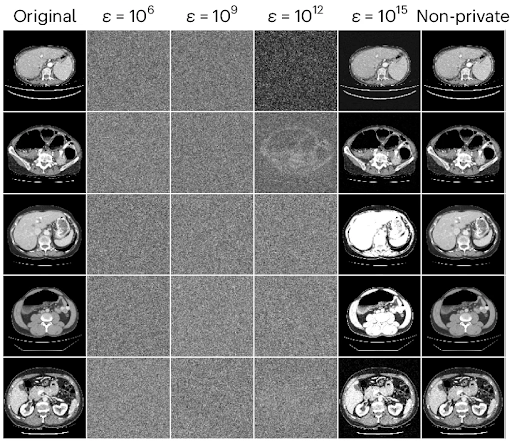As healthcare changes, oncology practices need to adapt to effectively meet patient needs. With nearly 2 million Americans expected to be diagnosed with cancer in 2024, connecting with potential patients is crucial. Digital marketing, especially search engine optimization (SEO), is important for improving the visibility of oncology services. This article outlines effective SEO strategies for oncology practices and how integrating AI solutions like ‘Oncology After-Hours AI’ can enhance patient engagement and operational efficiency.
The Importance of SEO for Oncology Practices
In the competitive healthcare field, SEO is necessary for oncologists aiming to enhance their online presence. With 82% of Americans using search engines to research healthcare providers, ranking well on search engines can lead to more patients. In fact, websites that secure positions in the top three search results receive more than 50% of clicks, showing the need for a solid SEO strategy.
When done properly, SEO raises awareness and attracts qualified visitors actively seeking oncology services. A well-optimized website can build trust and reliability, which are important in cancer care.
Key SEO Strategies for Oncology Practices
- Keyword Research
Conducting thorough keyword research is essential. This involves analyzing search terms that potential patients use when looking for cancer services. Effective SEO practices incorporate these keywords into titles, headings, and overall website content. Understanding what patients are searching for allows practices to align their messages with patient needs. - Local SEO Optimization
With 46% of Google searches being local, optimizing for local SEO is important. This can be done by registering on Google Maps and optimizing Google Business Profiles. Additionally, using geographical keywords in content ensures that local patients find the practice when searching for oncologists nearby. - Custom Content Creation
Offering engaging custom content meets the interests and needs of potential patients. This may include blogs on treatment options, patient testimonials, or FAQs that offer useful information. Quality content is favored by search engines and can significantly enhance search rankings. - Mobile Optimization
Since 59% of global web traffic comes from mobile devices, ensuring that a practice’s website is mobile-friendly is vital. This includes easy navigation, responsive design, and fast-loading pages to improve user experience. - Site Speed and Navigation
Websites should aim for quick loading times and easy navigation. Potential patients are less likely to engage with a slow or confusing website. Simplifying site navigation can boost both user experience and search engine rankings. - Building a Positive Online Reputation
With 72% of consumers depending on reviews to choose healthcare providers, managing online reputation is crucial. Oncology practices should encourage satisfied patients to leave positive reviews and respond to feedback to build trust and credibility.
How SEO Enhances Patient Acquisition and Retention
Effective SEO can provide a high return on investment by reaching individuals actively seeking oncology services. Unlike traditional marketing methods that may reach a broad audience, SEO targets potential patients with specific needs. This focused approach increases the chances of converting site visitors into appointments.
Moreover, SEO helps practices gain recognition within their communities. By appearing prominently in search results, patients are more likely to remember the practice and recommend it to others. This effect can result in a strong patient referral system, making SEO a useful tool for both acquisition and retention.
The Role of Analytics in SEO Strategy
Marketing analytics enables oncology practices to monitor their SEO performance and determine which strategies are most effective. This includes tracking website traffic, behavior patterns, and patient inquiries to adjust tactics as needed. By utilizing data, practices can refine their marketing strategies to enhance outreach.
Workforce Automations and AI Integration
As patient expectations shift, oncology practices must invest in technology to stay competitive. Using AI solutions like Oncology After-Hours AI can significantly change workflow and patient engagement.
- Automating Patient Interactions
AI in the front office can streamline appointment scheduling and patient inquiries outside regular hours. Automating calls and inquiries with AI allows practices to enhance efficiency and ensure potential patients receive prompt responses, even after office hours. Research shows that quick responses to inquiries can boost patient acquisition. - Enhanced Patient Care through AI
With AI managing routine inquiries and appointment bookings, administrative staff can focus on more complex patient interactions. This not only improves workflow but also enhances the patient experience, allowing for more personalized care. - Data Collection for Continuous Improvement
AI systems can gather and analyze data from patient interactions, providing insights into patient preferences and behaviors. This information can inform the practice’s SEO strategy, leading to more relevant content that meets patients’ needs. - Improving Accessibility
Patients increasingly want flexibility in their healthcare interactions. AI systems make information and services available 24/7, helping to make cancer care more accessible for individuals balancing various responsibilities. The combination of AI and SEO allows practices to meet the changing needs of their patients.
Content Marketing for the Patient Journey
Effective content marketing is crucial for driving patient engagement throughout their journey. This involves identifying key stages of the patient experience, from initial inquiries to post-treatment follow-ups. Providing relevant content at each stage can help guide patients in their decision-making process.
- Awareness Stage
At this stage, potential patients may feel confused. Educational content about cancer types, symptoms, and the importance of seeking care can help them find needed information. - Consideration Stage
As patients weigh their options, providing detailed information about treatments, success stories, and expert insights can build trust and confidence in the practice. - Decision Stage
During this crucial juncture, clearly outlining the next steps—such as how to schedule an appointment or the oncologist’s role during treatment—can significantly influence a patient’s decision to engage with the practice. - Post-Care Engagement
Staying in touch after care is important. Content such as follow-up care tips, treatment information, and support resources can help reinforce a positive relationship with patients, leading to better retention and referrals.
Leveraging Digital Advertising
Together with SEO, using targeted digital advertising strategies, such as Pay-Per-Click (PPC) ads, can be very effective. These ads help oncology practices target high-intent keywords, ensuring they appear at the top of search results when individuals are ready to schedule appointments.
A well-executed digital advertising campaign can enhance an organic SEO strategy, further increasing visibility for oncology practices. By focusing on local targeting, practices can assure their ads reach patients in their service area, maximizing the potential for appointment scheduling.
The Future of SEO in Oncology Practices
As healthcare continues to evolve, oncology practices must adopt innovative strategies that make use of technology and data. SEO remains increasingly relevant, as it helps practices connect with patients in meaningful ways, building trust during sensitive times.
With AI solutions like Oncology After-Hours AI and a solid SEO strategy, oncology practices can effectively position themselves to attract new patients and enhance the overall patient experience. Integrating technology with targeted marketing tactics helps cancer care providers navigate the complexities of modern healthcare.
Building a Patient-Centric Online Presence
Prioritizing the patient’s perspective is key for oncology practices looking to establish an enduring online presence. By focusing on patient needs in marketing strategies, practices can create strong connections that lead to lasting loyalty.
Informative content combined with strong SEO and responsive AI solutions ensures that oncology practices not only reach patients but also connect with them meaningfully. The ability to respond quickly to patient inquiries, provide useful information, and utilize technology to streamline operations positions oncology practices for success in today’s healthcare environment.
The post SEO for Cancer Practices: Optimizing for ‘Oncology After-Hours AI’ first appeared on Simbo AI – Blogs.











